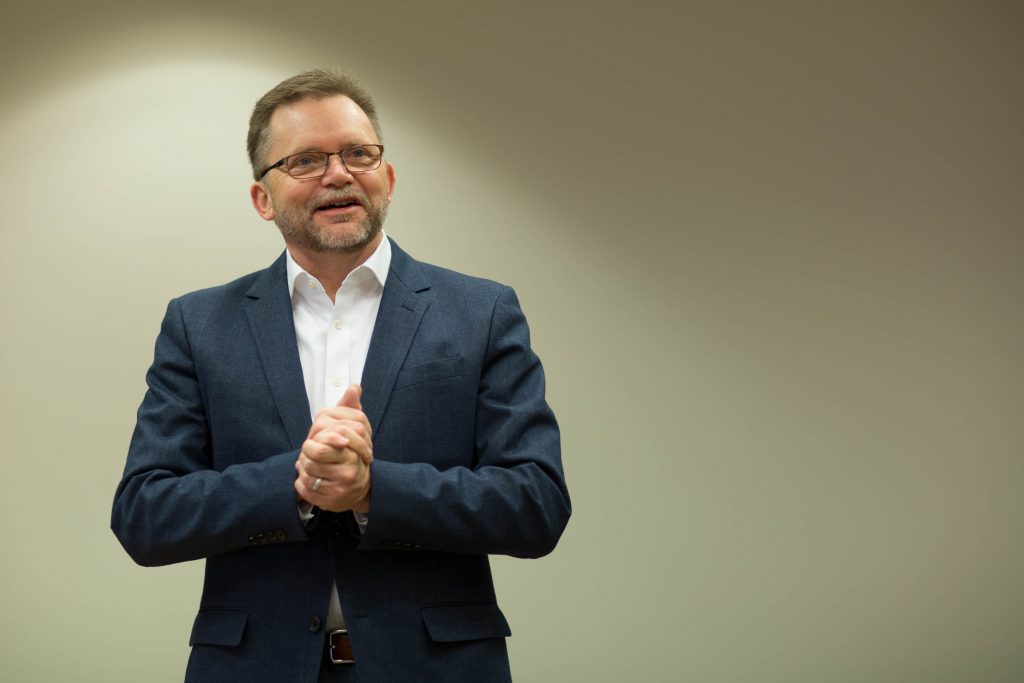It is the question that has been hanging over our elections for the last eight years. Ever since the Supreme Court decided, in Citizens United, that corporations can claim the right of free speech, the argument about whether corporations are to be legally regarded as people has been hotly debated. But that, said BC Law Professor Kent Greenfield, is the wrong question. Instead, the author of Corporations Are People Too (And They Should Act Like It) (Yale University Press) argued in his controversial new book that we should be asking how to make these entities into better people—and better citizens.
He spoke on November 13 at the Boston offices of McDermott Will & Emery, in an event sponsored by the Law School’s Rappaport Center for Law and Public Policy and moderated by Justice Robert Cordy, Rappaport Distinguished Visiting Professor and partner at the firm. Greenfield discussed the problems at the heart of Citizens United, which opened the floodgates on corporate campaign contributions.
“As humans, we know corporations are not people. They don’t feel awkward at holiday parties,” he said. Legally, however, we often want to treat them as such. “When BP spews hundreds of thousands of gallons of oil into the Gulf, you want to sue BP, not hundreds of thousands of shareholders,” he pointed out. This issue, he explained, goes back to 1819, when the Supreme Court ruled in the landmark Dartmouth College v. Woodward, that corporations do have some legal rights.
Noting that Citizens United was sparked by political campaign spending by organizations, Greenfield focused on the practical issues of the case.
For example, it is the money—not the donating body—that has the impact, he said. And since corporations are in many ways simply aggregations of people, their boundaries—and thus their legal rights—are, and may always be, “fuzzy.”
To more precisely tackle these issues, he proposed a radical, but feasible two-tier approach: working to limit all campaign expenditures and changing corporate governance to create more representative, and thus more responsible, institutions.
More representative could mean including stakeholders, such as employees, as well as shareholders on corporate boards. This would create a board with “a more robust set of obligations to a wider set of people,” he explained on Tuesday. In other words, corporations that, like humans, are concerned with more than simply the bottom line.
“If we injected democracy into corporations,” said Greenfield, “I fear their power less.”
Greenfield is a former Supreme Court clerk and an expert in constitutional and corporate law. He is the author of the Myth of Choice (Yale, 2011) and numerous articles in the Yale Law Journal, the Virginia Law Review, the Boston College Law Review, the George Washington Law Review, and Constitutional Commentary, among others. Read more about Greenfield in Boston College’s The Heights.


